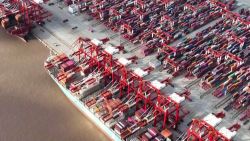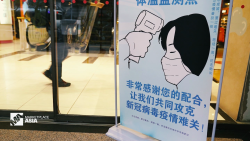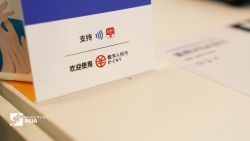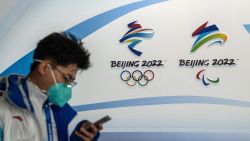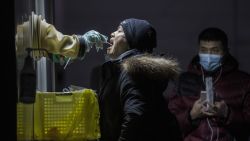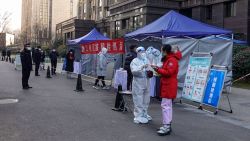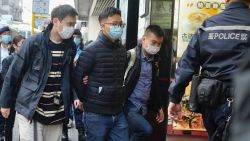Attorneys for Huawei’s chief financial officer want a Canadian court to halt her extradition case based on what they claim was misconduct by US and Canadian authorities.
That argument was detailed in court documents released Tuesday in Vancouver, where Meng Wanzhou is awaiting a hearing on her possible extradition to the United States.
Meng was detained in Canada late last year, and she and Huawei face a number of charges — including bank fraud, trade secrets theft and sanctions evasion — in US federal courts. Meng and Huawei both deny the charges. The US government has formally requested her extradition from Canada.
Attorneys for Meng, who is also the daughter of the Chinese tech company’s billionaire founder, claim that US and Canadian officials orchestrated a “covert criminal investigation” to unlawfully detain, search and interrogate her, according to court documents.
Meng was arrested at Vancouver International Airport on December 1 and detained by Canadian authorities on behalf of the US government. She was released on $7.5 million bail nearly two weeks after her arrest, after agreeing to surrender her passports, live in one of two homes she owns in the city and pay for an around-the-clock security detail.
The attorneys claim that Canada and the United States “coordinated a strategy” to “intentionally delay” Meng’s arrest so that Canadian border agents could hold her “under the pretense of a routine immigration check.” That allowed border agents to gather evidence from Meng “for the benefit” of the FBI and other US authorities, according to court documents.
Meng’s attorneys claim that Canadian authorities deceived Meng as to the nature of her detention and abused their search powers so they could collect evidence for the FBI.
“This pattern of serious misconduct, if established, would support an abuse of process justifying the remedy of a stay of these extradition proceedings,” Meng’s attorneys wrote. They also are seeking the disclosure of documents related to her detention, including emails and texts from several Canadian police officers, border agents and members of the US Department of Justice.
The Huawei executive’s arrest set off a political firestorm. In China, many viewed her arrest as a political move by the Trump administration to gain leverage in the US-China trade war.
The United States has long argued that Huawei poses a national security threat, and has claimed Beijing can use the company’s products to spy on other nations. Along with its criminal probe, the United States has also targeted Huawei by urging its allies to restrict or ban the use of the company’s equipment, and by placing it on a trade blacklist. Huawei denies that any of its products pose a national security risk.
Meng has already accused Canadian authorities of violating her rights. She filed a civil lawsuit in Canada in March alleging that she was unlawfully detained and questioned for three hours without being advised of her constitutional rights. She also alleged that her electronic equipment and luggage were illegally searched before she was told she was under arrest. That case is still pending.




